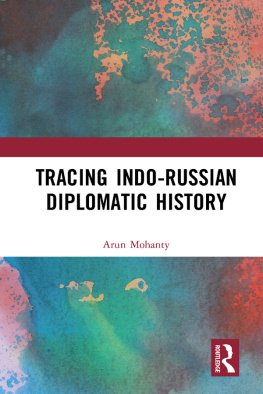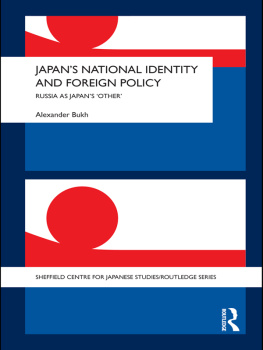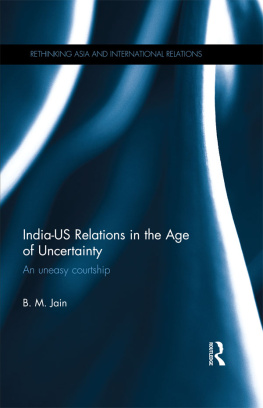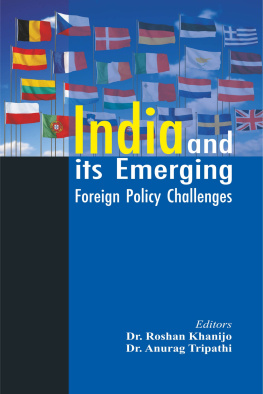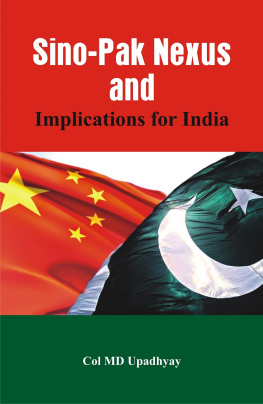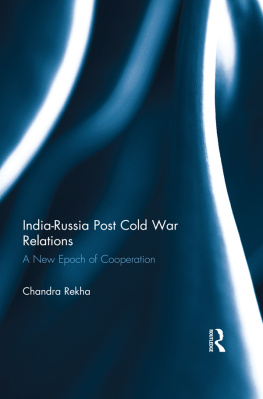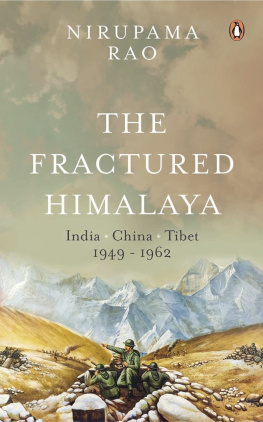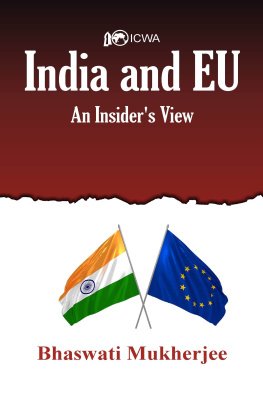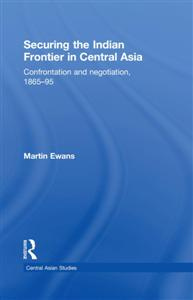TRACING INDO-RUSSIAN DIPLOMATIC HISTORY
The India-Russia relationship has been through a number of phases since its formal establishment in April 1947. Prime Minister Nehrus strategic vision led him to seek diplomatic relations with the Soviet Union (USSR) even before India attained Independence. The enthusiastic Soviet response launched a relationship which has had some unique features in the past seventy-two years.
The detailed history of the India-Russia relationship presented in this volume highlights the continued relevance of many of the factors that led to a close India-Russia bonding, even while identifying the slip roads into which the partnership has occasionally drifted.
Politics evolves continuously, but geography remains constant. The India-Russia relationship has a mutually-recognized geopolitical logic. They have common concerns in the shared neighbourhood of West and Central Asia. Like India, Russia has had a complex relationship with China. In the quest for a multi-polar world, in which every pole seeks to protect its core interests and promote its aspirations, Russia and India, as this comprehensive volume notes, will remain staunch partners in the foreseeable future.
Before his untimely demise in February 2018, Arun Mohanty wasthe Director of Area Studies and former Chairperson of the Centrefor Russian and Central Asian Studies, School of InternationalStudies, Jawaharlal Nehru University, New Delhi. Professor Mohantywas awarded Ph.D from USSR Academy of Sciences, Moscow, andspent thirty years of his life in Russia, teaching at various RussianUniversities before returning to India. In 2011, he was awarded theprestigious Pushkin Medal for his contribution towards developingand strengthening scientific and cultural relations between India andRussia. He was the founding Director of Eurasian Foundation andchief editor of Eurasian Report.
TRACING INDO-RUSSIAN
DIPLOMATIC HISTORY
ARUN MOHANTY
First published 2020
by Routledge
2 Park Square, Milton Park, Abingdon, Oxon OX14 4RN
and by Routledge
52 Vanderbilt Avenue, New York, NY 10017
Routledge is an imprint of the Taylor & Francis Group, an informa business
2020 Arun Mohanty and Manohar Publishers & Distributors
The right of Arun Mohanty to be identified as author of this work has been asserted by them in accordance with sections 77 and 78 of the Copyright, Designs and Patents Act 1988.
All rights reserved. No part of this book may be reprinted or reproduced or utilised in any form or by any electronic, mechanical, or other means, now known or hereafter invented, including photocopying and recording, or in any information storage or retrieval system, without permission in writing from the publishers.
Trademark notice: Product or corporate names may be trademarks or registered trademarks, and are used only for identification and explanation without intent to infringe.
Print edition not for sale in South Asia (India, Sri Lanka, Nepal, Bangladesh, Pakistan or Bhutan)
British Library Cataloguing-in-Publication Data
A catalogue record for this book is available from the British Library
Library of Congress Cataloging-in-Publication Data
A catalog record for this book has been requested
ISBN: 978-0-367-41884-7 (hbk)
ISBN: 978-0-367-81678-0 (ebk)
Typeset in Minion Pro 11/13
by Ravi Shanker, Delhi 110 095
Contents
The India-Russia relationship has been through a number of phases since its formal establishment in April 1947. Prime Minister Jawaharlal Nehrus strategic vision led him to seek diplomatic relations with the Soviet Union (USSR) even before India attained Independence. The enthusiastic Soviet response launched a relationship which had some unique features in the past seventy years.
The highlight of the 1950s and 1960s was the significant assistance extended by USSR to Indias industrial strength and economic development. This was reinforced by the political support in international forums for protection of Indias core interests. USSRs crucial vetoes of resolutions in the UN Security Council in 1957 and 1962 safeguarded Indias interests in Jammu & Kashmir. If the three Soviet vetoes had not been cast on UNSC resolutions in December 1971, seeking to restrain Indias military actions in the India-Pakistan war, the political map of South Asia may have been different from what it is today.
The Sino-Soviet rivalry formed the geopolitical backdrop to the strong Indo-Soviet ties of the 1960s. The US-China dtente and the US tilt to Pakistan provided the glue that bound the countries together in the Indo-Soviet Treaty of 1971. It galvanized the political and economic cooperation of the 1970s and 1980s and intensified the close defence cooperation that has developed into the present versatile engagement of the two countries in the defence sector.
In the last decade of the twentieth century, both countries confronted major challenges. The break-up of the Soviet Union created political, economic and social disruptions in Russia, which had an impact on relations with India. India itself underwent an economic transformation, faced new security challenges and recalibrated its foreign policy. Despite these disruptive changes, the legacy of history and geopolitical realities sustained the framework of bilateral cooperation.
The new millennium sparked a resurgence in bilateral relations. The strategic partnership, which was announced during President Putins first visit to India in 2000, saw a significant broadening and intensification of cooperation. The similarity or identity of views on major global issues was reflected in close coordination of actions in various international forums. Defence cooperation moved from a buyer-seller relationship to one of joint research, development and manufacture of advanced weapons systems. Collaboration in nuclear power generation broke the shackles of international restrictions. Over the years, hydrocarbons became a major sector of investments in both directions. In recognition of the all-round strengthening of the relationship, the two countries decided to term it a special and privileged strategic partnership in 2010.
In the present global environment, a wide network of international relationships has increased Indias room for manoeuvre in international affairs. Russias multi-vector foreign policy pursues similar objectives. There is a popular perception that this multialignment dilutes the strength of the India-Russia partnership. This perception is invalid, both because todays international engagements are not zero-sum exercises and because some basic ground realities of the India-Russia relationship remain unchanged.
Politics evolves continuously, but geography remains constant. The India-Russia relationship has a mutually-recognized geopolitical logic. We have common concerns in our shared neighbourhood of West and Central Asia. Like India, Russia has had a complex relationship with China. In the quest for a multi-polar world, in which every pole seeks to protect its core interests and promote its aspirations, Russia and India will remain partners in the foreseeable future.
Within this broad trend of India-Russia convergence have been and will continue to be nuances caused by differing internal analyses, tactical considerations and immediate political compulsions. This volume by Professor Arun Mohanty explores these dynamics in some depth, as it documents the political and economic intersections in the course of our two countries through the past seven decades. It is instructive to see how the relationship has been shaped by external dynamics and has reinvented itself to meet new challenges. The detailed history of the India-Russia relationship in this book highlights the continued relevance of many of the factors that led to a close India-Russia partnership, even while identifying the side alleys into which the relationship has occasionally (though temporarily) drifted.

